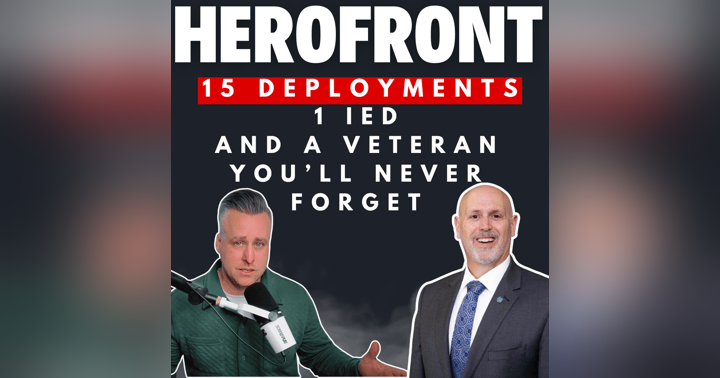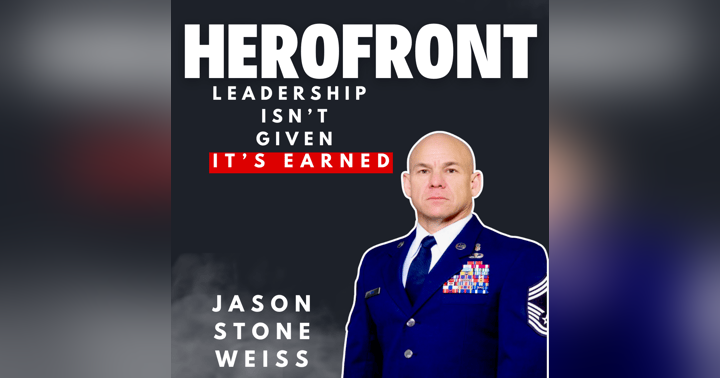Keep Hope Alive During Your Military Transition: Insights gained from Veteran Owned Company Namauu Technological & Industrial (NTI)

I attended an incredibly insightful talk given by the Namauu Technological & Industrial (NTI) Team who shared invaluable insights on navigating a challenging phase for any Veteran entering the void of unknown...Departing the Military. I wrote down my notes from the event and knew in my heart others need to hear his info as well so I crafted it into an article just for you!
Dr. Kekai Namauu, a retired E-6, Randall Brazelton, a retired E-7, and Hope Skibitsky, a retired Command Chief, have successfully transitioned from military careers to leading a highly profitable and innovative company - NTI, an SBA Super 8(a) firm, specializes in Cyberspace Service Management℠ (CYSM) principles and has garnered a reputation for providing dependable, mission-focused, and agile solutions to federal and state government customers. With their extensive military backgrounds and current executive roles, Kekai, Braz, and Hope understand the unique challenges veterans face and they are crushing it on the outside! (https://namauu.com)
Their combined experience and success offer a roadmap for others looking to make a similar transition. Here are the key takeaways from their talk that have been on my mind:
Start Early and Network Aggressively
The best day to start preparing for your transition was yesterday; the next best day is today. Start now (like TODAY) with your finances and your network. The biggest takeaway that came up many times was your network and relationships will take you farther than any resume ever could. Engage with peers, attend conferences, and participate in job fairs. Remember, a strong network can open doors that a resume alone could not.
- Pro Tip: VA loans are not guaranteed once guaranteed income is lost. i.e. you are between jobs. If you do not have 6 months of retainability, the VA loan is often denied because lenders have the final say. Many vets find themselves scrambling to find a place to live once they realize they now must place a down payment and end up renting until they are once again employed and qualified for the VA loan.
Craft a Compelling Resume Opener
Your resume's first paragraph should grab attention immediately and be tailored for the job you are pursuing. This is the most important section which could land you in pile A. (review later) over pile B. (not impressed). Avoid listing job experiences you have no desire to pursue. Instead, focus on what you genuinely want and what you are passionate about.
Stay Humble and Delegate
Understand that everyone is replaceable in the military, and it will continue without you. A hard pill to swallow for many of our 30-year Command Chiefs. Delegate responsibilities to others to free up at least some time for essential activities like networking, attending conferences, and planning your future. Working until your last day can potentially harm your transition.
- Storytime: Hope shared a very transparent and vulnerable story about the end of her career. She felt at the top of her game and recognized that her unique ability to connect with people on a different level truly set her apart. After lengthy discussions with her family, she concluded that retirement was the best option. Although she was exceptional (my opinion), she realized during her retirement announcement that she was still replaceable, despite the uniqueness she brought to the table, just like any other Airman serving. The environment quickly shifted gears, and she was promptly encouraged to move out of base housing so the next leader could take her place. It was apparent the Service wouldn't miss a beat in her absence, and the mission would continue as if nothing had happened. It was an eye-opening experience for her and a lesson in humility that she carries with her to this day. Like Wendy Thi from the Orange Gum Podcast once told me "If Hope Skibitsky can retire, anyone can."
Know when to NOT be humble
When it comes to your elevator pitch, which will come up often when job seeking. Don’t hold back! Sell yourself and what you offer like your life depends on it. Get excited and really go for it! You have earned the publics trust! You have years, decades, of leading people in highly stressful (and sometimes dangerous) environments. You have tremendous value, you got this!
Give Back and Define Yourself
Volunteering at events or serving on panels is a great way to network and give back to the community. Additionally, take time to reflect on who you are outside of the uniform. Identify what you love doing, what you're good at, and your purpose.
- Storytime: Hope focused on really asking yourself, who are you when you have a civilian I.D. card? When you aren't in uniform? When the calls stop? If not prepared ahead of time this can be jarring. Your level of responsibility and the pace military members maintain feels like jumping out of a moving vehicle when it abruptly stops overnight. Like Hope said "The silence can be deafening and all your left with is the ringing in your ears."
Consider Your Family's Needs
Success in your career should not come at the expense of your family. Although its all too common. We want to achieve greatness and sometimes we are willing to leave behind anything and anyone to achieve it. Reflect on this: Are you ok with leading at the top...alone? To Retire with the section reserved with your family strikingly empty? Awkwardly having to explain why your loved ones couldn't make it? The Military will not adopt you once you take the uniform off. Pause and think about what your family wants and needs. Are they supportive of your career decisions? Balance your professional aspirations with your family’s well-being before it's too late.
Utilize SkillBridge Opportunities Wisely
If you’re unsure about your next career step, highly consider a SkillBridge opportunity. This program could offer valuable FREE certifications or exposure to new career fields, providing a shift in perspective. However, don't count on these opportunities leading to a permanent job. You will be working hard and learning fast, so do not feel bad about taking advantage of what they have to offer you. Capture all the offered mentorship, experience, networking, and anything else they provide.
Be Open to Change & Don’t wait for the perfect job
Civilian careers are more fluid than military roles, and it’s common for veterans to change jobs several times before finding the right fit. 65% of Veterans quit their first job within the first two years post-service. Most find the best fit between 3-5 jobs before staying in for the long haul. In the Military we get stuck with the decisions we make, a move to a different assignment guarantees at least four years for most. It's ingrained in us that our decisions equal long-term consequence. As a civilian it's just not the case, you're free now!
Know Your Worth
Some companies might offer lower salaries, attempting to figure in military retirement pay and VA benefits. This practice is unethical, but it happens. Recognize your value and don’t sell yourself short. If something feels off, consult with a mentor who's been through it. Some companies also solicit specifically for prior Officers and others pay more to prior Officers despite having the same qualifications. Be prepared to walk away from a poor offer. You are worth more than that!
Seek Mentorship
Mentorship is crucial during your transition. Kekai directly attributes his tremendous success as a civilian to his mentor. He mentioned "Look for mentorship dynamics where bothparties benefit." Actively seek mentors who can guide you through this period, and participate in events and platforms like LinkedIn to connect with potential mentors. Sometimes asking over LinkedIn for a simple phone call can lead to opportunities based on how you sell yourself and your tenacity.
Don't Let Your Rank Define You On The Civilian Side
Rank often defines one's identity in the Military, we literally wear it on our uniform and it's a powerful visual reminder of where we stand, and what our left and right boundaries are which are often rigid. In civilian life, your skills and abilities are what matter most. There are talents you can unlock that are insanely valuable in the civilian world. You could have a skill set that doesn’t fit well in the military but is extremely valuable outside of it. Kekai demonstrated that regardless of rank, veterans can achieve great success by leveraging their unique talents, abilities, experiences (even the tedious ones), discipline, and network, to stretch far beyond their past duties in the Military.
Volunteer and Give Back
Engaging in volunteer work in-line with the civilian careers you are interested in, participating in panels or attending a local Chambers of Commerce meeting, can significantly boost your networking potential and boost your resume showcasing your ability to work outside your scope and even better if with civilian orgs. Giving back to the community not only helps others but also opens up new opportunities for personal and professional growth.
In conclusion
The insights shared by Dr. Kekai Namauu, Randall Brazelton, and Hope Skibitsky during their recent talk provide a valuable roadmap for veterans transitioning from military service to civilian careers. Their experiences underscore the importance of early preparation, aggressive networking, and self-awareness. Veterans are encouraged to start planning their transition early, craft compelling resumes, stay humble yet confident, and prioritize their family's needs. Utilizing programs like SkillBridge, seeking mentorship, and being open to change are also key strategies. By embracing these approaches, veterans can successfully navigate their new career paths and find fulfillment in civilian life.





